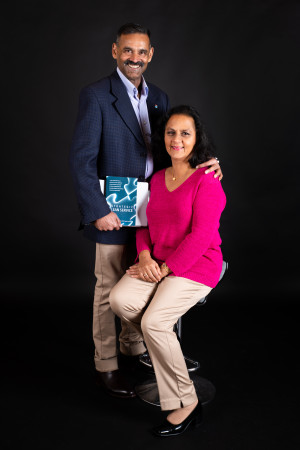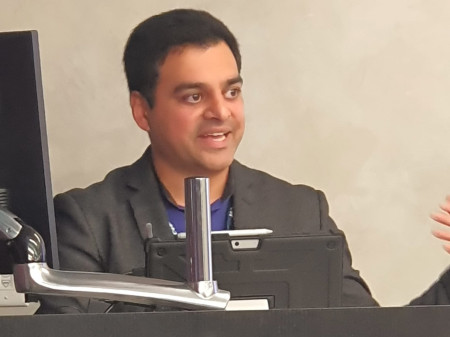Sunit Prakash and Lalita Kasanji are a couple on a mission: to build connections between New Zealand and India’s IT sectors, to support new migrants and help boost the New Zealand economy.
Sunit is an IT consultant with more than 30 years’ experience in the sector, while Lalita has a background in sociology and played a key role in establishing the Ethnic Affairs Office in the early 1990s. The office had several names before it was established as the Ministry for Ethnic Communities in 2021.

Sunit Prakash and Lalita Kasanji
Frustrated by a lack of support for new immigrants and noticing numerous opportunities to boost connections between the two countries, Sunit and Lalita decided to do something to help. In 2023 they officially launched the New Zealand Centre for Digital Connections with India.
The centre assists businesses to navigate the challenges of cross-cultural communication and collaboration. It aims to influence Government policy, support cross-country trade and offer guidance and mentoring.
The centre has recommended to Prime Minister Christopher Luxon that he takes a digital and IT trade delegation with him on his first visit to India. It has also provided opportunities to showcase ethnic talent, including a session with Shashank Handa, Enterprise Architect at the Civil Aviation Authority, who shared insights on his professional journey.
Sunit and Lalita estimate Indian IT professionals contribute $350 million to the New Zealand economy each year, and say there are opportunities to expand that. A closer relationship between the countries’ digital and IT sectors is crucial in achieving success, as seen in Australia, they say.
Indian IT professionals bring skills, experience and fresh perspectives to their work – this is an advantage to the industry, they say. But they are often faced with so many barriers.
They say there are many challenges to people succeeding, including qualifications not always being recognised, a lack of pastoral care, racism and limited opportunities to step into senior leadership roles.
“The one thing people come up against all the time is ‘no Kiwi experience’,” says Sunit.
“They make for a real model migrant community…we attract skills, but often we’re not able to retain them.
“We see a need for this. We see people who are talented and who can contribute so much.”

Shashank Handa presenting
Sunit and Lalita interviewed several senior Indian IT professionals who have worked in Aotearoa. Through their research they realised support was a “predicator to success”. Many of the professionals came to New Zealand on work visas. They had jobs lined up, sometimes a house as well and were usually offered some level of pastoral care.
Now nearing retirement, many of them are giving back to their communities. Sunit is no different. Over the years, he has offered mentoring and guidance to new migrants. He helps them write their CVs, apply for jobs and supports them to navigate the New Zealand system.
“These are people who want to make New Zealand their home,” Lalita says.
“It’s just assumed they will get a job and leave. Of course, they will leave if they are not taken care of.”
They recommend a “landing pad” be established to support new migrants by way of providing information, knowledge, insights, guidance and networks. It would be guided by an advisory panel of IT professionals with connections to India and an understanding of overseas qualifications and work experience.
The couple, who have had a long relationship with the Ministry and former office, put their heart into this work.
“It’s my joy,” Sunit says.
For more information, check out the New Zealand Centre for Digital Connections with India website.
